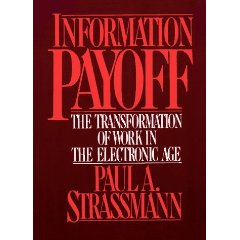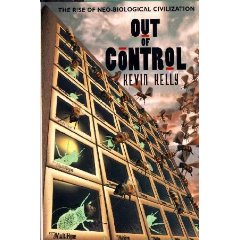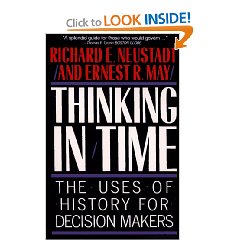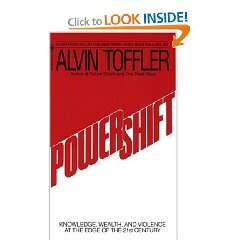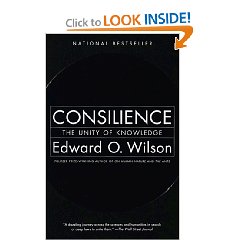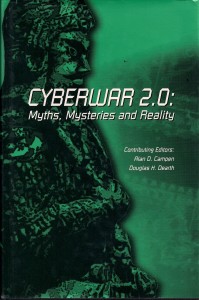Review: Out of Control–The Rise of Neo-Biological Civilization
5 Star, Asymmetric, Cyber, Hacking, Odd War, Best Practices in Management, Change & Innovation, Complexity & Resilience, Consciousness & Social IQ, Culture, Research, Economics, Environment (Solutions), Future, Information Operations, Information Society, Information TechnologyReview: Thinking in Time–The Uses of History for Decision-Makers
5 Star, Best Practices in Management, Consciousness & Social IQ, Education (General), History, Information OperationsThis has several implications, and I regard this book as one of perhaps five that are long-term essential building blocks for the new craft of analytic tradecraft being devised by the CIA's Kent Center and Jack Davis:
1) Intelligence is remedial education for policymakers. There is no getting around this. While the authors are much more diplomatic than I could ever be, the raw fact is that most policy makers are very loosely-educated and generally do not have a high-quality international affairs education or substantive experience dealing with foreign affairs or even national affairs. They are local lawyers, businessmen, “friends of the President,” etcetera.
2) Objective, internationalist intelligence will always be in conflict with subjective, domestic politics unless–and this is the other new theme just now emerging, years after the author's published their work–there is a public intelligence community and the citizen-voters are receiving sufficiently compelling intelligence they can use to demand and vote for early and thoughtful action instead of in extremis reaction.
3) The book breaks new ground in establishing the importance of history, not only for drawing intelligence conclusions (understanding ethnic conflict, for example, is best done in the context of 200+ years of prior history), but for translating, converting, interpreting foreign events, threats, and opportunities in domestic historical terms that can be more easily absorbed by very busy policymakers.
I do not mean to suggest that the authors are condescending. Far from it. They take a very difficult and complex matter, that of speaking truth to power about foreign issues, and offer it up in a very sensible and understandable form.
The best of the students using this book for coursework will understand that it is a “keeper,” of lasting value as a future reference, worth returning to from year to year for a refresher on the value of history in both understanding and communicating.

Review: Governing in an Information Society
4 Star, Best Practices in Management, Information SocietyReview: Powershift–Knowledge, Wealth, and Violence at the Edge of the 21st Century
5 Star, Best Practices in Management, Complexity & Resilience, Culture, Research, Economics, Education (General), Information Operations, Information Society, Intelligence (Public), Intelligence (Wealth of Networks)Review: Consilience–The Unity of Knowledge
5 Star, Best Practices in Management, Change & Innovation, Complexity & Resilience, Consciousness & Social IQ, Education (Universities), Environment (Solutions), Future, Information Society, Intelligence (Collective & Quantum), Intelligence (Public), Intelligence (Wealth of Networks)Comment: This is still one of the best books for someone who wants to think deeply about knowledge. Below are links to some others I recommend.
Our answer to Levy, but an order of magnitude more practical and steeped in some of the best endnotes I've ever enjoyed. Consilience is the “jumping together” of knowledge across boundaries, and the greatest enterprise of the mind. He begins with an example, showing how biology, ethics, social science, and environmental policy must all come together to properly resolve a global environmental issue, but actually do not-the learned individuals are fragmented into four separate communities, and within those communities further fragmented into nationalities and cliques and jobs, and it is our greater loss for we cannot arrive at the best policy without being able to integrate the knowledge across all these boundaries. He emphasizes that the public must be educated and have access to this unified knowledge, not just the policymakers. He poses, and then answers across the book, this question: “What is the relation between science and the humanities, and how is it important to human welfare?” In my own mind, Edward O. Wilson has defined both national and global intelligence writ large, and done so in way that suggests the “virtual intelligence community” is a very practical and achievable vision.
The Future of Life
The Wealth of Networks: How Social Production Transforms Markets and Freedom
The Wealth of Knowledge: Intellectual Capital and the Twenty-first Century Organization
Revolutionary Wealth: How it will be created and how it will change our lives
Powershift: Knowledge, Wealth, and Power at the Edge of the 21st Century
Infinite Wealth: A New World of Collaboration and Abundance in the Knowledge Era
The Age of Missing Information
Forbidden Knowledge: From Prometheus to Pornography
Smart Mobs: The Next Social Revolution
Information Productivity: Assessing Information Management Costs of U. S. Corporations

